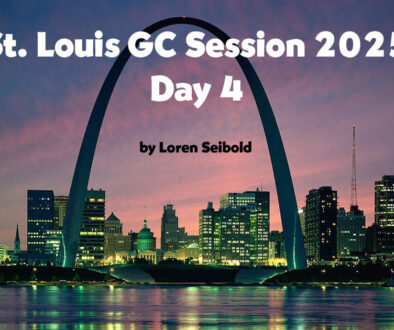Ellen White Included in Smithsonian’s “100 Most Significant Americans”
By AT News Team, December 1, 2014: A special issue of a widely respect history journal has included Ellen G. White, the most important of the cofounders of the Seventh-day Adventist denomination, among what it calls the “100 most significant Americans.” She is one of only 11 religious figures included on the list of whom just three are women.

The Smithsonian Institution is an agency of the United States government that is responsible for the major museums in the nation’s capital region. It publishes The Smithsonian Magazine, a widely-read journal of American history and culture. The most recent issue is a special edition with concise descriptions of “The 100 Most Significant Americans.”
The other two women included with White in the section on the most influential American religious figures are Mary Baker Eddy, the founder of the Christian Science religion, and Anne Hutchinson, who was a religious dissenter among the Puritans who founded Massachusetts. Hutchinson was an early advocate of a grace-oriented Christian faith and helped to establish the principle of religious liberty in America.
The eight men who round out the most significant American religious figures include Joseph Smith and Brigham Young, founders of the Church of Jesus Christ of Latter-Day Saints or Mormon religion; and Jonathan Edwards and Cotton Mather, the two most noted preachers in the Congregationalist movement that early on shaped much of American Protestant faith. Also included are William Penn, the Quaker leader who founded Pennsylvania on principles of religious freedom; Roger Williams, an early Baptist leader who also played a key role in establishing American principles of religious liberty; L. Ron Hubbard, founder of the quite recent Scientology religion; and Billy Graham, the key leader of the contemporary Evangelical movement in the U.S.
There are ten other categories on the list of 100, each with about ten individuals named and described. “Trailblazers” includes early explorers like Christopher Columbus and Neil Armstrong, the American astronaut who was the first human to step on the Moon. “Rebels and Resisters” includes Martin Luther King, the organizer of the Civil Right Movement that brought full citizenship to African Americans in the 1950s and 1960s; and John Brown, an anti-slavery activist who played a violent role the led to the American Civil War of the 1860s.
Among the ten other categories are also a section for the most important U.S. Presidents, the first women to lead in many sectors, Outlaws, Artists, Pop Icons and Athletes. The section entitled “Empire Builders” includes famous achievers in technology and business such as the inventor Thomas Edison, leading industrialist and philanthropist Andrew Carnegie and Steve Jobs, who started the Apple computer company and did much to pave the way for today’s Internet applications.
White was a prolific writer and her books have been distributed by the millions around the world. She built the modern Adventist movement and is widely respected for her spiritual gifts of prophetic vision and leadership over a career that spanned the second half of the 19th century and the early years of the 20th century. A collection of scholarly papers on her life, ministry and role in Christianity was published early this year by Oxford University Press. One source has suggested to Adventist Today that the publication may have been influential with the decision-makers at the Smithsonian.
A copy of the special issue of the Smithsonian journal can be ordered at this Web page: www.smithsonianmag.com/smithsonianmag/meet-100-most-significant-americans-all-time-180953341/#4HY7Tf13phRXuHJp.99




